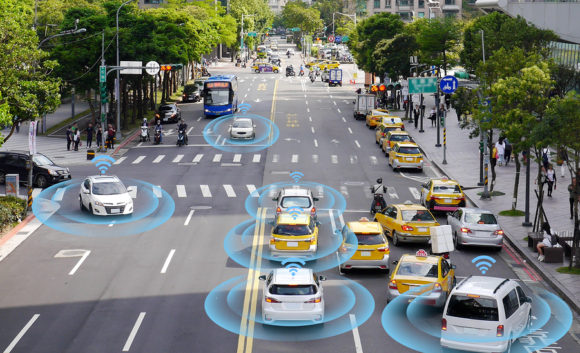While the race to automated vehicles picks up speed, a new survey reveals consumer are skeptical of the technology and the safety claims of its advocates, a new survey finds.
Also, the insurance industry may be in the best position to answer consumer questions about safety of automated vehicles and smooth the road to their acceptance.
Not all consumers are on-board with automated vehicles, with 40 percent of those surveyed saying they see no advantage to fully automated vehicles and 42 percent saying they would not ride in an automated vehicle regardless of what progress is made in technology, according to the survey from J.D. Power and the National Association of Mutual Insurance Companies.
Safety is the main reason for lack of consumer acceptance of AVs.
The J.D. Power pulse survey of 500 auto insurance customers, conducted in late August, uncovered other realities facing this emerging technology:
- Nearly as many respondents cited safety as an advantage (19%) of AVs as those who cited safety as a disadvantage (17%) of AVs.
- Nearly half of all respondents (45%) say they would require 100% safety before they would ride in an AV.
- Just 17% of those surveyed believed there is an achievable level of safety testing for AVs that would make them comfortable with riding in an AV.
- 73% of consumers surveyed said they definitely would not or probably would not replace ride sharing with a fully automated vehicle.
Consumers have trust issues related to AVs, but they trust the insurance industry most when it comes to addressing safety. Thirty-five percent (35%) of respondents named the Insurance Institute for Highway Safety or its subsidiary, the Highway Loss Data Institute, as groups they would trust most to perform reliable safety testing for AVs. Auto manufacturers (12%), the federal government (9%), and state governments (4%) lagged far behind.
Respondents cited the insurance industry (34%) as having a greater interest in safety than either auto manufacturers (26%) or technology companies (23%), though most respondents believe the main motivating factor for all sectors is profit-driven.
Whether AVs will be permitted to operate on the roads may depend on public demand that driverless cars have the requisite level of safety. The insurance industry has led auto safety advocacy for decades – seat belts, airbags, and cameras.
Results of the J.D. Power pulse survey on automated vehicles and insurance are being presented on Oct. 9 at NAMIC’s The Future of Auto Summit, held at the University of Michigan Transportation Research Institute and Mcity Test Facility on the UM campus.
Survey co-authors Tom Karol, NAMIC’s general counsel, federal, and Robert Lajdziak, J.D. Power Insurance Practice, will present the findings.
“Consumers look to insurers to establish reliable safety standards,” said Karol. “The results of this survey show why it’s imperative for the insurance industry to have a seat at the table in convincing consumers that automated vehicles can be trusted.”
Karol said insurance companies have a critical role to play in bridging the gap between consumer caution and consumer adoption of this emerging technology.
Topics Auto Tech Personal Auto Market
Was this article valuable?
Here are more articles you may enjoy.



 Insurance Broker Stocks Sink as AI App Sparks Disruption Fears
Insurance Broker Stocks Sink as AI App Sparks Disruption Fears  Allstate CEO Wilson Takes on Affordability Issue During Earnings Call
Allstate CEO Wilson Takes on Affordability Issue During Earnings Call  Florida Engineers: Winds Under 110 mph Simply Do Not Damage Concrete Tiles
Florida Engineers: Winds Under 110 mph Simply Do Not Damage Concrete Tiles  Nine-Month 2025 Results Show P/C Underwriting Gain Skyrocketed
Nine-Month 2025 Results Show P/C Underwriting Gain Skyrocketed 

